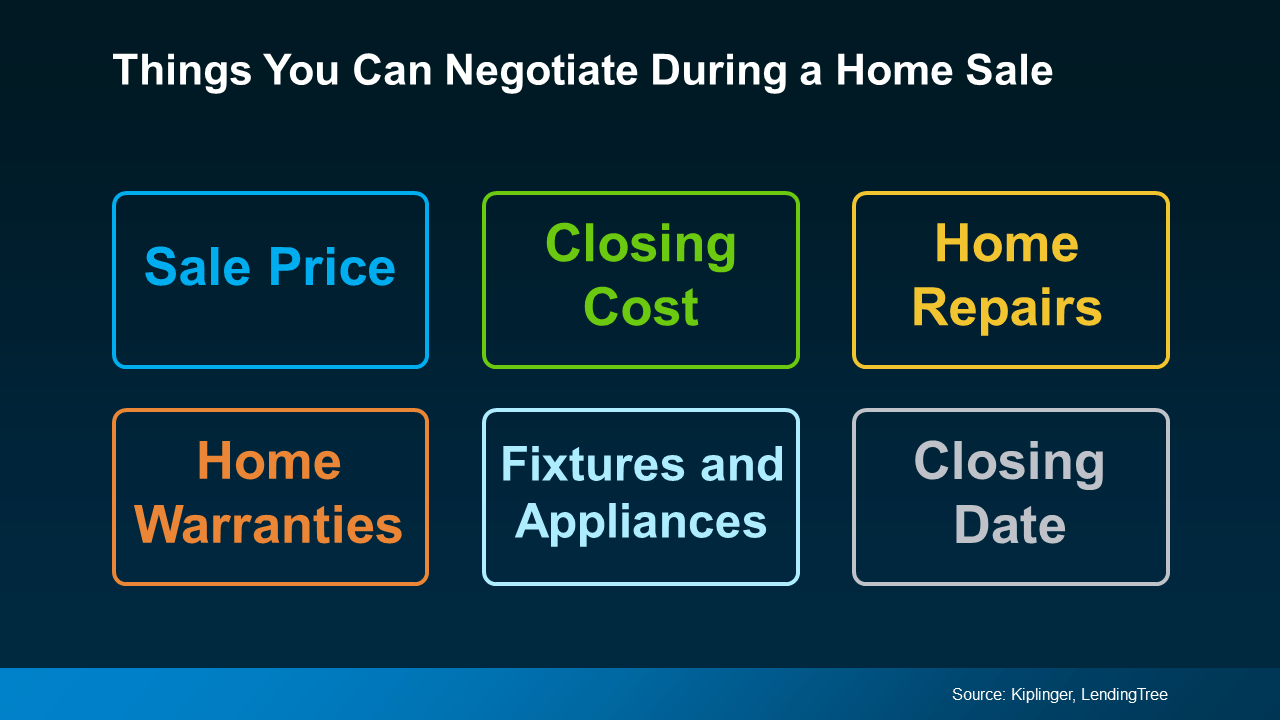If you haven’t noticed, homebuyers are starting to regain some negotiating power in the current market. While it’s not quite a buyer’s market, it does mean buyers might have the ability to ask for a bit more. Sellers should be prepared for this and have a clear understanding of what they’re willing to negotiate.
Whether you’re buying or selling a home, here’s a quick overview of potential negotiations that might arise during the transaction. This will help you be prepared, no matter which side of the deal you’re on.
What Can You Negotiate?
Almost everything in a home purchase is open for negotiation. Here are just a few of the options, as highlighted by Kiplinger and LendingTree:

-
Sale Price: The most obvious point of negotiation is the price of the home, and it’s becoming more common to see buyers leveraging this. With affordability being a major concern, buyers are cautious about overpaying. Sellers who set unrealistic asking prices may find themselves needing to make adjustments.
-
Home Repairs: After an inspection, a buyer can reasonably request that the seller make necessary repairs. If the seller is unwilling to do so, they might offer to lower the home price or cover some closing costs, allowing the buyer to handle the repairs themselves.
-
Fixtures: Buyers may request that certain appliances or furniture remain with the house when it’s sold. For example, having the seller include the washer and dryer can reduce the buyer’s moving-in expenses. As a seller, you might consider leaving behind your existing appliances to make the deal more appealing, while giving yourself the opportunity to purchase new ones for your next home.
-
Closing Costs: These typically amount to about 2-5% of the home’s purchase price. Buyers can request that the seller cover some or all of these costs to reduce the amount of cash they need to bring to the closing.
-
Home Warranties: Buyers may request that the seller cover the cost of a home warranty. This can provide peace of mind to buyers concerned about potential maintenance expenses after they take possession of the home. Since home warranties are generally not too costly for the seller, this can be a mutually beneficial concession.
-
Closing Date: Buyers may request a faster or extended closing period to align with their schedule. Sellers, in turn, can negotiate for a timeline that suits their own moving plans, helping both parties reach a suitable compromise.

